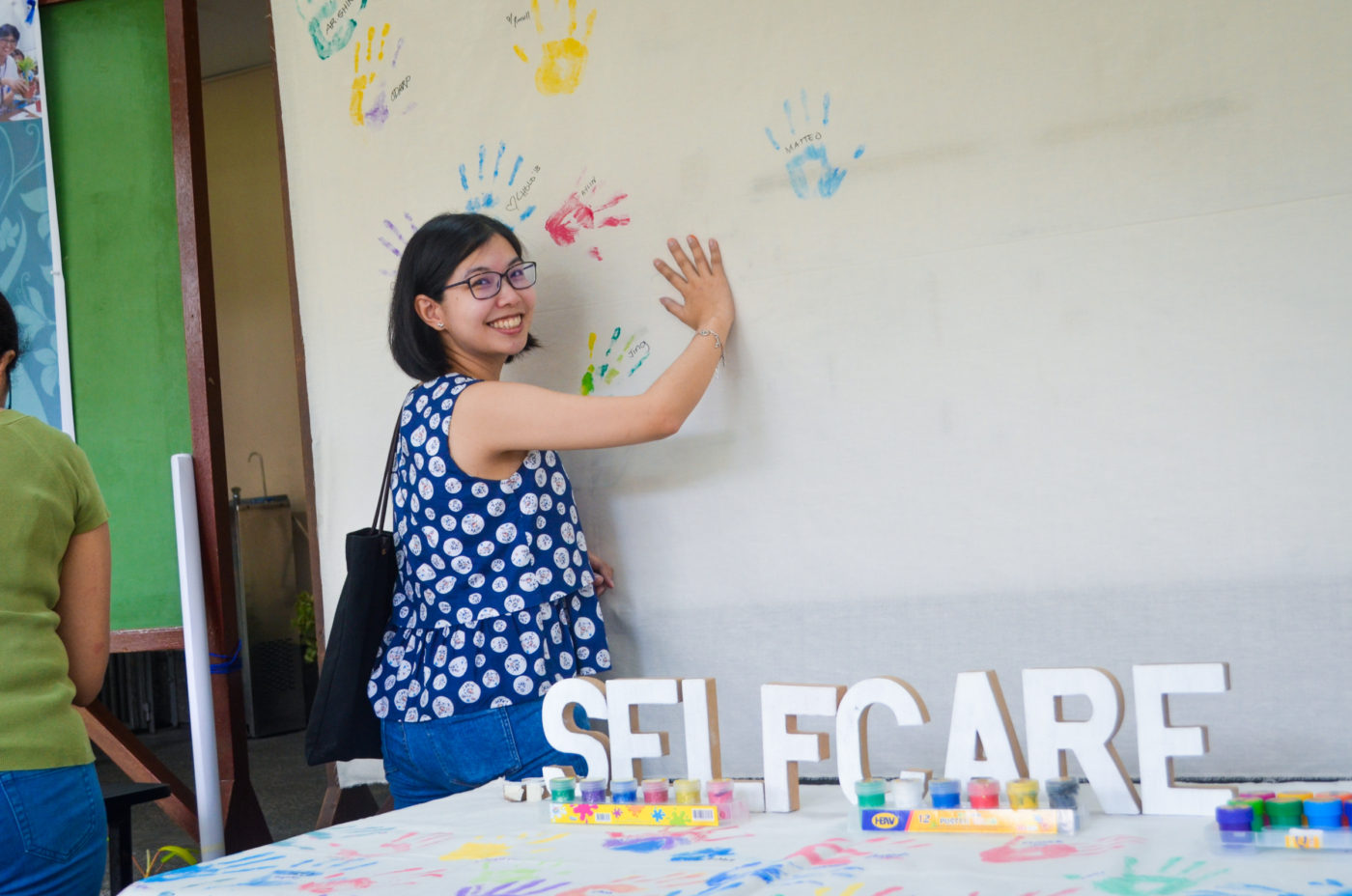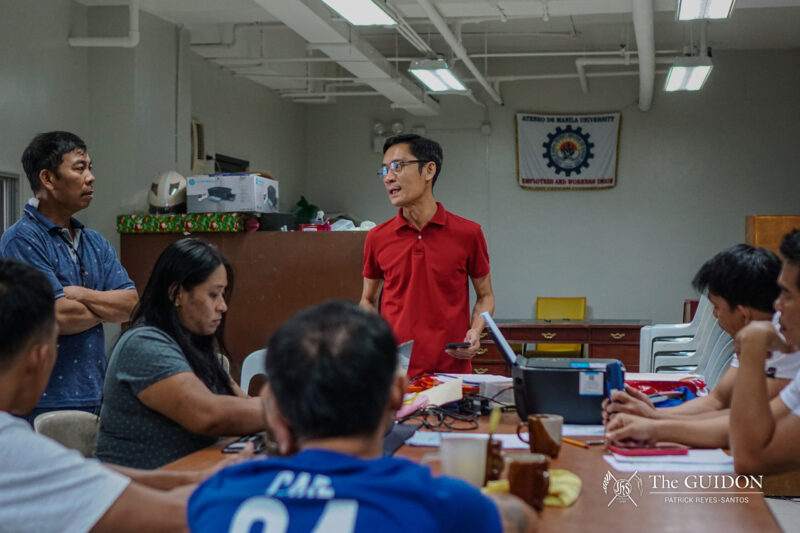LAST SEMESTER, the Sanggunian conducted a plebiscite where a Php 1 million investment fund for mental health initiatives was approved by the student body in a landslide victory. This fund will be handled by the Sanggunian in cooperation with the Loyola Schools Office of Guidance and Counseling (LSOGC).
However, Sanggunian Commission on Mental Health (CMH) Co-Commissioner Kaina Sera Jose (2 BS PSY) stated that only the investment’s annual interest will be utilized for the mental health subsidies.
According to her, the investment has been estimated to gain an interest of Php 30,000 to Php 40,000 annually. She said that by using just the interest, the subsidy will be “sustainable enough” to continue in the following years.
Sera Jose added that the CMH has yet to discuss the specifics of the budget allocation. To explain the projects that the budget will be used for, she cited Section 3 of Sanggunian Resolution No. 3 of AY 2019-2020 which states that, “The created fund shall be used for various mental health projects and initiatives that benefit the population within the Loyola Schools, including but not limited to: [Check-ups], assessment, diagnosis, and treatment.”
“As of now, our vision is to provide [a] subsidy for individuals who are most in need of therapy and medication that the LSOGC cannot provide,” she said.
Setting a course of action
To explain the source of the fund, Sera Jose said that the Php 1 million investment came from the Sanggunian budget last school year. Moreover, the fund will only be officially constituted when the Mental Health Investment Fund Demand Collection Balance (DCB) account opens—though CMH does not have a target date for this yet.
Section 3.1 of Sanggunian Resolution No. 3 also states that the Sanggunian’s newly formed Mental Health Policy Technical Working Group will be responsible for handling the overall investment funds.
Sera Jose said that the Technical Working Group will be comprised of various members from the Sanggunian, namely representatives from the CMH, the Office of the Vice President, and each Loyola School’s Sanggunian. The respective presidents of student organizations Ateneo Peers and Ateneo Psyche will be included in the group as well.
Aside from this, Sera Jose added that throughout the CMH’s planning for the fund’s distribution they will also be consulting with the LSOGC for their “expertise in developing effective solutions to existing problems related to mental health.”
Need for financial assistance
On a campus level, one of the problems students face when seeking help for mental health issues is the lack of in-house psychiatrists at the LSOGC. Sera Jose stated that although the LSOGC’s counseling services are free, the lack of psychiatrists means that students who need medication are referred to external institutions that require fees.
LSOGC Director Gary Faustino shared his worries about the “very small amount” of the investment fund’s interest and how this may not be enough to cover treatments and services. “It might not be sustainable with Php 30,000 a year,” he said.
Faustino claimed that the more experienced psychiatrists will charge around Php 3,500 for one session and that even the least expensive rates range from Php 2,000 to Php 2,500.
Mae,* a student who recovered from severe clinical depression, said that her LSOGC counselor referred an off-campus psychiatrist for her diagnosis. When she regularly visited the psychiatrist, she spent Php 3,000 per session and had to purchase “pricey” medications.
With that, she said that it could help to allocate a portion of a budget for hiring an on-campus psychiatrist. However, Faustino mentioned that this would be too expensive due to the retainer fees, it remains a possibility given a bigger budget and a longer time frame. Faustino also explained that the allocation would be helpful in cases wherein parents refuse to pay for their child’s treatments.
“There are some parents who will not finance [treatments] because they do not believe in [mental health],” he said.
In instances like these, Faustino said that the LSOGC would write to the Vice President for the Loyola Schools Maria Luz C. Vilches, PhD for a financial request to shoulder the student’s treatment. However, some of these requests do not get approved because a student’s parents are deemed to have the financial capacity to shoulder the treatments themselves.
Working around limited funds
To make the fund’s budget larger, Faustino suggested investing Php 900,000 and reserving the remaining Php 100,000 for the Sanggunian’s use throughout the school year. However, Sera Jose stressed the importance of keeping the invested money untouched for sustainability, even if the interest is small.
“It is important for us in the Sanggunian that our projects do not only have an impact during our term, but are also sustainable enough to take effect for a long period of time,” she said.
Faustino suggested that the LSOGC use the fund’s budget for food, venue reservations, speakers’ fees, flyers, and the like. Mae* agreed with this idea and suggested using the money for seminars that “teach [students and teachers] how to handle situations related to mental health.”
Despite the limitations of the budget, Faustino still said that the interest is necessary “if you want to have some flexibility.” For example, he explained that for smaller event purchases the additional money will still be useful.
However, Faustino said that even without the investment, the LSOGC can simply use their internally-generated funds for said programs, as they had been doing so for the previous years.
He then concluded that overall, the investment should be treated as an emergency fund for students who need it. He also proposed that the money should only be loaned to students in order to maintain the budget.
Sera Jose had similar thoughts, saying that with “limited” funds, they could only help those “who are in most need of financial assistance.” She also clarified that everything is still under tentative discussion between the CMH and the LSOGC.
Strides forward
Monetary concerns of the fund aside, Faustino mentioned that making people aware of the Sanggunian’s mental health projects and getting students to actually participate is another problem for them to solve in the future.
As for Faustino’s thoughts on the Sanggunian’s mental health-related initiatives, he said that he was satisfied with the Sanggunian’s recent projects for mental health awareness, particularly the mental health subsidy and the formation of the CMH.
Sera Jose mentioned that the Sanggunan’s initiatives for taking care of the students’ mental health “have come a long way.” Though she admitted that they still have much to do, especially since the goal of the CMH this year is to take concrete actions to implement the investment. With that, Sera Jose hopes that the Ateneo community continues to help each other make the campus a more conducive space for taking care of one’s mental health.*Editor’s note: The name of the interviewee has been changed at their request in order to protect her identity.







